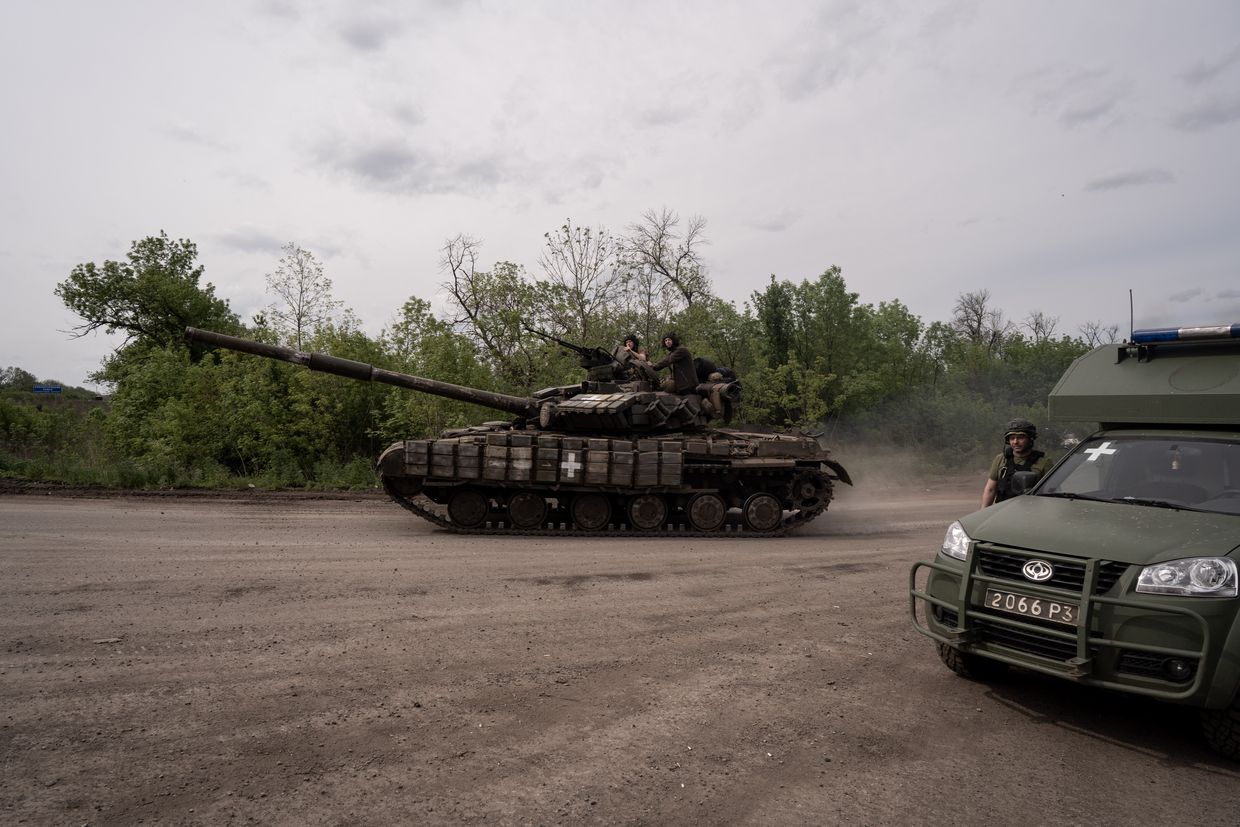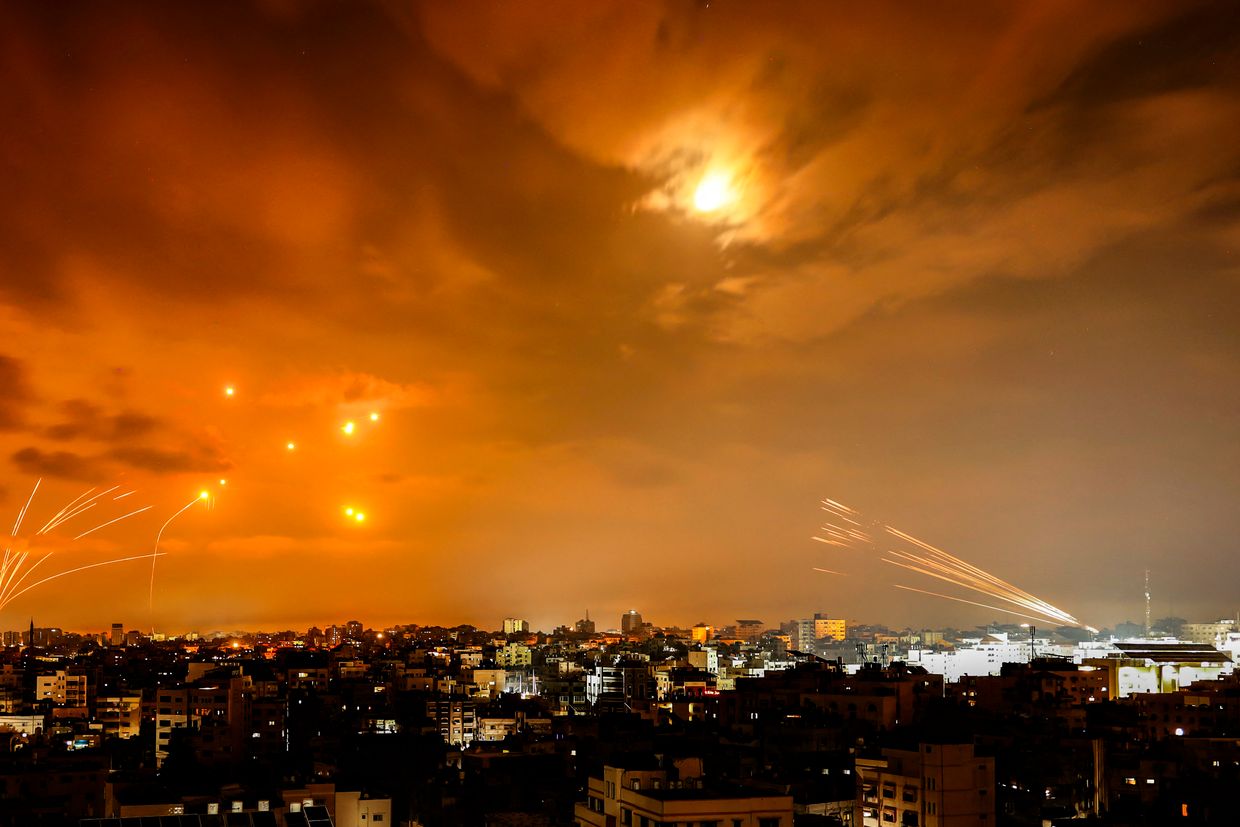‘A wave of terror:’ Hamas attack brings back haunting memories of war for Ukrainians in Israel

Stefania Stavytska woke up on Oct. 7. in the Israeli port city of Jaffa with a queasy feeling of déjà-vu.
The 25-year-old video producer thought she had left the sounds of sirens behind when she left Kyiv in March 2022, at the start of Russia’s full-scale invasion.
Instead, she faced the same fears all over again that morning when the extremist group Hamas launched thousands of rockets at Israel, shattering her illusions of safety, she told the Kyiv Independent.
She says there were several strikes nearby, including in Tel Aviv where she works part-time at a bar where according to her, everything is now “in fragments.”
“It’s strange to experience the outbreak of war for the second time in different countries when you are only 25.”
Many Ukrainians in Israel, like Stavytska, fled their home country for a safer future. They are now forced to revisit the past trauma of Russia’s war against Ukraine as they find themselves caught in the crossfire of the Israel-Palestine conflict.

Caught in the crossfire
Foreign Ministry spokesperson Oleh Nikolenko said there are currently 14,000 Ukrainian citizens listed on the consular register of Ukraine's embassy in Israel.
The Foreign Ministry's operative headquarters also said it has processed over 1,000 appeals from Ukrainians affected by the renewed fighting in Israel and the Gaza Strip.
The number of Ukrainians killed in Hamas' attack on Israel has risen to three, Nikolenko reported on Oct. 11.
Nine more Ukrainian citizens have been injured in the hostilities; their condition and place of hospitalization are being clarified, the official said.
Ukrainian diplomats and Israeli law enforcement are working together to establish the whereabouts of six missing Ukrainians, according to Nikolenko.
According to the latest estimates by local authorities, more than 700 Israelis and 430 residents of Gaza have been killed since Hamas' Oct. 7 attack.
"We are looking for a solution to help our people leave the country… working out potential evacuation routes," Nikolenko said.
However, for Stavytska, leaving is not an option for now. “There is nowhere to go, all the countries around are enemies (of Israel),” she said.
But staying in Israel may become untenable if the fighting intensifies between Israel Defense Forces and the Iran-backed Lebanese armed group Hezbollah, Stavytska said.
The escape plan she’s drawn up involves going through Egypt and flying from there, but she’d need to travel across Israel, which is too dangerous for now.
Anastasiia Moshkina, a 29-year-old IT specialist, is also worried about an escalation from Lebanon. She lives in Petah Tikva, which is 10 kilometers from Tel Aviv and 75 kilometers from the Gaza Strip.
Her neighbor is from Mariupol — a city now occupied and practically destroyed by Russia’s months-long siege in 2022. The rocket attacks brought back haunting memories to her neighbor, she said.
“She’s in shock,” she said. “It’s a horrific wave of terror.”
Moshkina settled in Israel before Russia’s full-scale invasion, but she returned to the Ukrainian capital in May, right when Russian forces launched an intense series of missiles and drone attacks, which she remembers way too well.
"I hope it ends soon," she said.
Running for shelter
If the shellings get too intense, Stavytska has access to a basement with an armored door in her building.
“If it’s very scary, of course, we’ll go to the basement,” she said, but for now, she’s decided to shelter in her apartment, saying that the basement is not in the best condition as the building is old.
Living in an area populated by Arabs, she says she could hear people rejoicing in the street when the attack started. As Hamas infiltrated the city, paranoia set in, she said.
Jaffa, an ancient port city, is located some 68 kilometers from the north of the Gaza strip.

In Israel, it’s not rare for houses to have a built-in shelter that doubles as a panic room, but this is not the case for Valerya Averbuch, who also had to run out of her building to a nearby shelter when the shelling started.
The 31-year-old model and life coach’s mother wanted her to return to Kyiv, but she said she doesn’t see it as an option since it’s still dangerous in Ukraine amid the ongoing war with Russia.
She said she was thinking about going to Portugal “if things go south,” but starting a life from scratch would be very difficult for her and her partner.
Most of her Ukrainian friends are “not that worried,” she said because they’ve been desensitized.
“But it is crappy to come from a war and then to land in a war, you know.”
Averbuch described the attack as disaster, but she considers herself lucky as she just has to stay home, especially compared to partygoers killed or abducted by Palestinian militants at a desert festival in Negev in southern Israel.
Stavytska shared the picture of one of her friends online, who has disappeared since the attacks started.
She doesn’t know where he is. He could have been abducted like many at the festival, but she doesn't have news from him yet.

A reported 260 bodies were recovered from the site, while the Hamas has taken some partygoers hostage.
“I know friends of friends who disappeared from the festival,” she said.
Meanwhile, life must continue for Stavytska, who works part-time in Habarbanel, a local “legendary place like for old rockers, with cheap prices, pizza and beer.”
A rocket fell nearby, and the bar was immediately closed, but she has a shift this week, so she’ll work as usual, “no matter what.”
“Old rockers need to drink beer,” she said, and war won’t change that.













